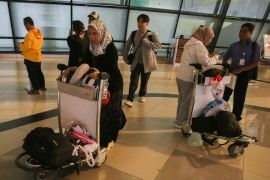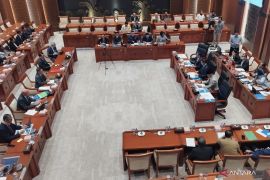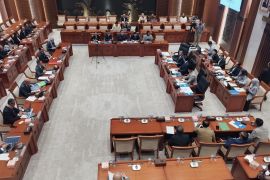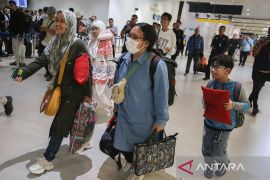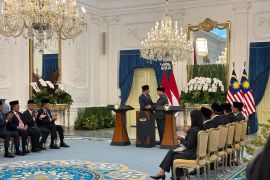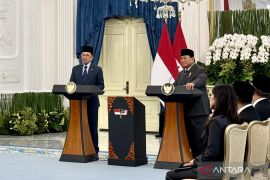The statement by the three neighbouring presidents followed an announcement by US President Barack Obama that Washington will withdraw 33,000 of its 99,000 troops from Afghanistan by the end of next summer.
"All sides stressed their commitment to efforts aimed at eliminating extremism, militancy, terrorism, as well as rejecting foreign interference, which is in blatant opposition to the spirit of Islam, the peaceful cultural traditions of the region and its peoples` interests," the statement said.
They agreed to continue meeting at ministerial level ahead of the next summit in Islamabad before the end of 2011, added the statement carried by Iran`s official IRNA news agency.
Afghan President Hamid Karzai and his Iranian and Pakistani counterparts Mahmoud Ahmadinejad and Asif Ali Zardari also held three-way talks on Friday ahead of Saturday`s six-nation gathering.
Speaking at the opening session of the two-day summit, Karzai said that despite his government`s efforts, regional militancy was rising.
"Unfortunately, despite all the achievements in the fields of education, infrastructure and reconstruction, not only has Afghanistan not yet achieved peace and security, but terrorism is expanding and threatening more than ever Afghanistan and the region," Karzai said.
A brazen suicide attack on Saturday on a hospital some 75 kilometres (45 miles) south of the Afghan capital Kabul killed at least 20 people and wounded more than 20.
"Terrorists violate both human and divine values by inflicting death and destruction on fellow human beings. They have no religion," Pakistan`s president said.
He said terrorism has cost 35,000 lives in Pakistan, 5,000 of them law enforcement personnel, and caused material damage totalling $67 billion.
In his speech, Ahmadinejad again accused Iran`s arch-foe the United States of using the September 11, 2001 attacks as a "pretext" to send troops to the region.
"In light of the way it was approached and exploited, September 11 is very much like the Holocaust," he charged.
"The American government used the attacks as a pretext to occupy two countries, and kill, injure and displace people in the region.
"If the black box of the Holocaust and September 11 is opened, many of the realities will come to light. But unfortunately despite worldwide demand, the American government has not allowed it."
Ahmadinejad has repeatedly courted controversy by questioning the accepted version of both the September 11 attacks, which killed nearly 3,000 people, and the Holocaust during which six million Jews were killed.
In a message read to the counter-terrorism conference, also attended by the leaders of Iraq, Sudan and Tajikistan, Iran`s supreme leader Ayatollah Ali Khamenei spoke out against what called Western abuse of the terrorist threat.
"The diabolical calculation of the dominating powers is to exploit terrorism as a tool to gain their illegitimate aims and they have used it in their plans," Khamenei said.
Khamenei later received Karzai, Talabani and Zardari.
"The Americans seek permanent bases in Afghanistan. This is a dangerous issue because as long as American troops are present in Afghanistan, real security will not prevail," IRNA cited Khamenei telling Karzai.
"US intervention is the root of Iraq`s problems... Americans are banking on differences between Iraqi factions to extend their presence there, and Iraqi groups should be aware of this," he told Talabani, Iranian media reported.
"America tries to sow discord in Pakistan so it can harvest its illegitimate aims, but the Pakistani people, aware of Washington`s evil intentions, should resist American domination," Khamenei told Zardari.
On the summit`s sidelines, Talabani said Camp Ashraf, home to an outlawed armed Iranian opposition group, would be closed before the end of 2011.
He said a a tripartite committee had been created by Iraq, Iran and the International Red Cross to oversee the closure, IRNA reported.
The People`s Mujahedeen established Ashraf in the 1980s, when now-executed Iraqi dictator Saddam Hussein`s regime was at war with Tehran, as a base from which to attack Iran. (*)
Editor: Kunto Wibisono
Copyright © ANTARA 2011

